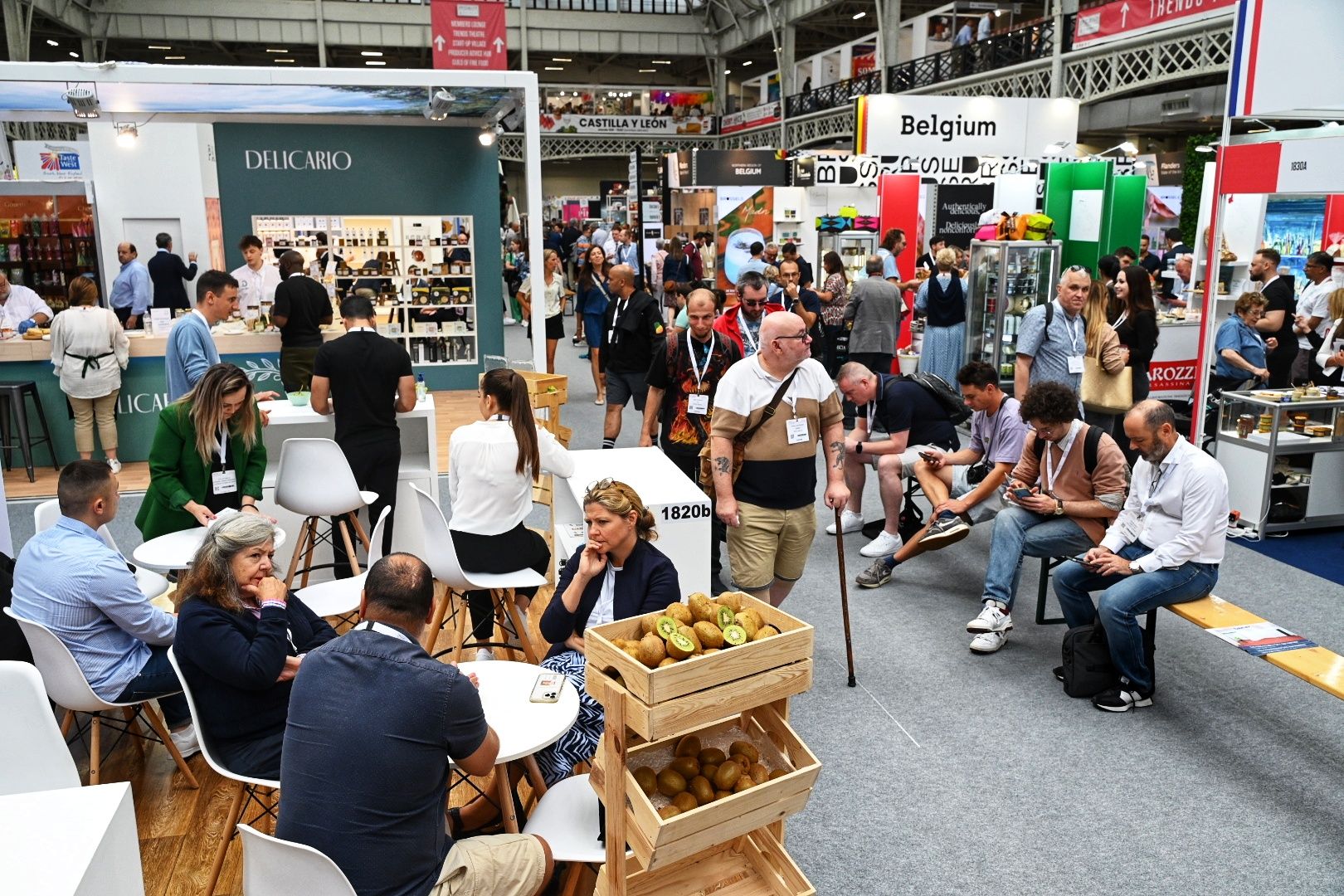
We visited the Speciality Food and Wine Fair at Kensington Olympia yesterday (11 September) to find out more about the challenges and opportunities faced by the sector.
The event played host to hundreds of artisanal food and drink companies and we spoke to the exhibitors about their experience of exporting to the EU since 2021.
We also gauged their thoughts on importing from the EU ahead of new sanitary and phytosanitary (SPS) checks coming in at the UK border from January 2024.
Barriers
Thomas Deryckere from Belgian company Turtle Cereals, which produces and sells organic, sugar-free and gluten-free breakfast foods, said that the company was keen to find UK distributors at the fair. However, barriers created by new customs rules were proving challenging. He said:
“In Europe, we sell in 19 countries and that’s always been super easy, but in the UK, you need an import address.
“It makes it a bit more difficult, needing to go over all those barriers. It’s always costly. That’s why you need to find the right people to work with, the ones that can help you grow.
“I’m trying to find good partners that we can work with, so they can make our life easier.”
UK appeal
Olivier Marmet, CEO of French firm IBEX, which produces alcohol-infused whipped cream, is also searching for distributors. However, the appeal of the UK remains for his business because of the affinity UK consumers have with its product, despite additional barriers.
“In Europe we don’t need to have an importer, we can sell directly to the customer. Now because of the new fees, we need to have an importer.
“Everybody tells me it’s not very simple. They all said: ‘try first in France and then the rest of Europe’ and I’m doing the reverse. I started first in the UK, because I like the market, I like that people are very curious.
“More than anywhere else, we have received interest in the product. The excitement was fantastic.”
‘What’s an I-PAFF?’
Less optimistic was Sam Hanbury, founder of UK gelato maker Baboo Gelato.
He expressed exasperation at the frequent delays to the implementation of the UK’s new Border Operating Target Model (BTOM) and a lack of clarity around what’s expected from businesses.
Baboo imports ingredients from the EU, such as hazelnuts and blood oranges from Italy. BTOM will impact the company’s ability to import these ingredients quickly and cheaply.
Reflecting on all the new processes and documents his firm needs to complete, he said:
“We’re a small business and all of a sudden we have to do an ‘IPAFF’ and a ‘CHED-P’. I had absolutely no clue what that was!”
Bigger the better
Larger businesses, already exporting beyond the bloc, felt better able to adapt to new regulations.
Guna Rubene, head of business development at Latvian craft drinks-maker Tàlava, was unphased by upcoming changes.
She said that her confidence in the company’s already significant export experience helped to put her at ease, saying:
“We export to other countries outside the EU, so because we have dealt with the customs procedures for several years already.”
She expects any additional research and paperwork will be absorbed by the firm’s dedicated team of customs experts who navigate this daily, adding:
“Yes, there might be specifics for every type of country, but you just need a lot of information, and a lot of preparation. Our team will be doing their homework ahead of time.”
IOE&IT will be holding a special interest group for members specialising in food and drink on Wednesday 20 September. Head here to confirm your place.



